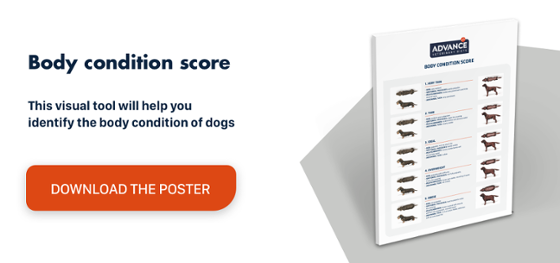Megaoesophagus in dogs: a brief review of the disease
Megaoesophagus is a condition involving oesophageal dilation and hypomotility due to neuromuscular dysfunction. It causes regurgitation immediately after swallowing food or, sometimes, several hours later, in which case the contents of the vomit will be fermented and may contain both solids and liquids. It is usually accompanied by dysphagia, sialorrhoea and halitosis.
Megaoesophagus in dogs: clinical signs
Aspiration pneumonia often develops secondary to megaoesophagus, mainly in puppies. If so, dogs have fever, dyspnoea, pulmonary crackles and mucopurulent nasal discharge. Sudden death due to invagination of the stomach into the oesophagus is not uncommon (gastro-oesophageal intussusception). If megaoesophagus is left untreated for a protracted period, it can lead to severe malnutrition.
Oesophageal dilation can be confirmed by means of diagnostic imaging using plain or contrast-enhanced X-rays. X-rays enhanced with a contrast agent provide a clear picture of the oesophageal lumen. When using a contrast agent, ideally it should be mixed with the patient’s food to emphasise any signs of pathological motility.
Megaoesophagus in dogs: causes
There are three types of oesophageal dilation in dogs:
- Congenital megaoesophagus. The signs are present from birth, although it is usually first observed during weaning, when puppies do not take well to solid food and regurgitate it. Congenital oesophageal dilation is attributed to a lack of neuromuscular maturity.
- Secondary megaoesophagus. That is, when megaoesophagus develops as an impairment linked to a primary disease or lesion. Underlying causes include myasthenia gravis, dysautonomia, botulism, distemper, intoxication (lead), neoplasms, foreign bodies, fistulas, malformations, vascular rings, hypoadrenocorticism and hypothyroidism.
- Acquired idiopathic megaoesophagus. The primary cause of oesophageal dilation in these cases is unknown. Various different hypotheses have been suggested as causes including neurotoxins and hereditary factors.
Large dog breeds, especially German Shepherd Dogs, Irish Setters and Great Danes, have a greater predisposition to developing megaoesophagus.
Oesophageal dilation: treatment
Besides treating the primary cause, if any, some vets use cholinergic agents to increase muscle tone in the oesophagus. However, the effectiveness of these treatments remains to be proven.
The most effective treatment consists of implementing hygienic and behavioural measures when feeding the animal:
- Always give food and water in small amounts.
- Ensure dogs remain in an upright, begging position while swallowing and for several minutes after. Special chairs are available for this purpose (Bailey chair).
- Change the patient’s food between solid, semisolid or liquid to find out which type it tolerates best.
No surgical treatment has proved effective so far, although several working groups are studying some novel therapies.
Megaoesophagus in dogs: prognosis
The prognosis depends on the original cause of the oesophageal dilation:
- Congenital megaoesophagus tends to improve spontaneously over time, so it has an acceptable prognosis.
- For secondary megaoesophagus, the prognosis depends on the progression of the underlying disease and whether there is any permanent neuromuscular damage.
- Acquired idiopathic megaoesophagus has an uncertain prognosis and often develops into a chronic condition. Nevertheless, hygiene and dietary measures can help prevent the onset of any related diseases.
In all three cases, the prognosis worsens drastically if the megaoesophagus develops into pneumonia and/or gastro-oesophageal intussusception. As such, early and appropriate treatment is essential when dealing with megaoesophagus.

